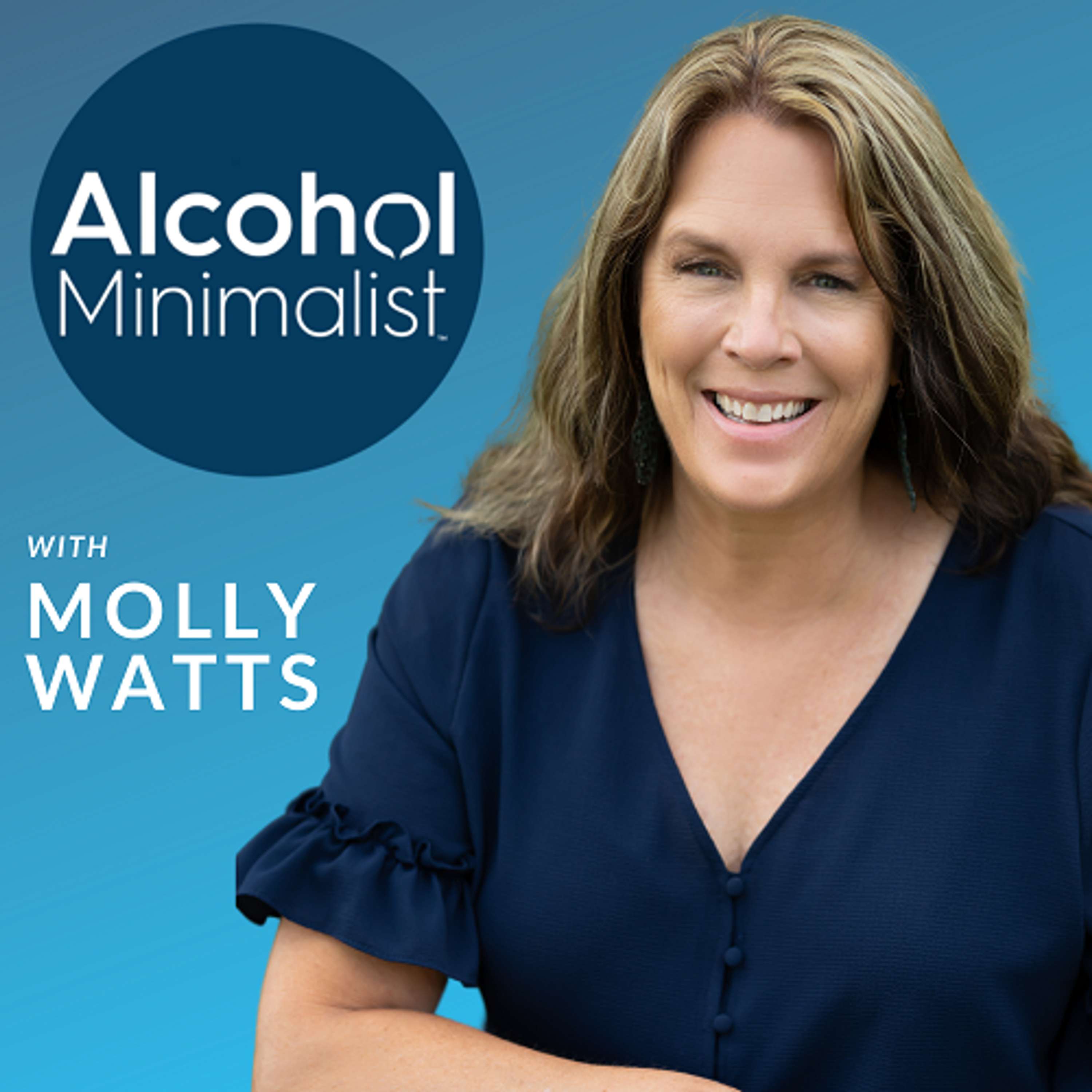
Binge Drinking & Breast Cancer: Kathryn's Story

Alcohol Minimalist: Change Your Drinking Habits!
Shownotes Transcript
This week on the podcast I'm joined by fellow alcohol coach, Kathryn Elliott. Kathryn lives in Melbourne, Australia and on this episode she shares her story as a binge drinker who chose an alcohol-free life and six weeks after she did, she was diagnosed with breast cancer. After successful treatment for cancer, she went on to become an alcohol coach and is dedicated to increasing awareness of the dangers of even moderate drinking for increased breast cancer risk.
Check out her work at alcoholmindsetcoach.com)Learn more about alcohol and the risk of breast cancer here: https://drinklessforyourbreasts.org/)
Check out Just START: Smart Thinking and Real Tools to Change Your Drinking Habits www.mollywatts.com/start)
Buy Breaking the Bottle Legacy: How to Change Your Drinking Habits and Create A Peaceful Relationship with** Alcohol on Amazon** )or most online retailers.
Join my private FB group Alcohol Minimalists here: https://www.facebook.com/groups/changeyouralcoholhabit)****
Has this podcast helped you? Please leave a review wherever you listen to podcasts!
**Follow me on Instagram: @AlcoholMinimalist **
Have you grabbed your free e-book, "Alcohol Truths: How Much is Safe?" Get it here.)****
Low risk drinking guidelines from the NIAAA:
Healthy men under 65:
No more than 4 drinks in one day and no more than 14 drinks per week.
**Healthy women (all ages) and healthy men 65 and older:**No more than 3 drinks in one day and no more than 7 drinks per week.
One drink is defined as 12 ounces of beer, 5 ounces of wine, or 1.5 ounces of 80-proof liquor. So remember that a mixed drink or full glass of wine are probably more than one drink.
Abstinence from alcoholAbstinence from alcohol is the best choice for people who take medication(s) that interact with alcohol, have health conditions that could be exacerbated by alcohol (e.g. liver disease), are pregnant or may become pregnant or have had a problem with alcohol or another substance in the past.
Benefits of “low-risk” drinkingFollowing these guidelines reduces the risk of health problems such as cancer, liver disease, reduced immunity, ulcers, sleep problems, complications of existing conditions, and more. It also reduces the risk of depression, social problems, and difficulties at school or work.
If you' are unsure about whether or not you have alcohol use disorder, please visit the NIAAA) for more information.
** ★ Support this podcast ★) **